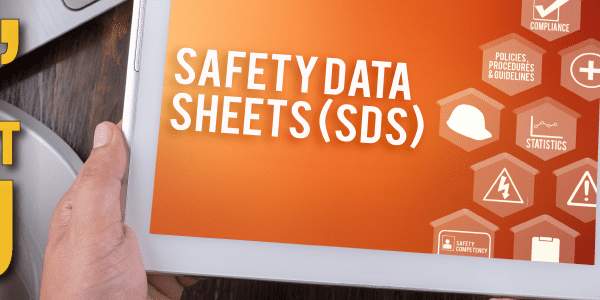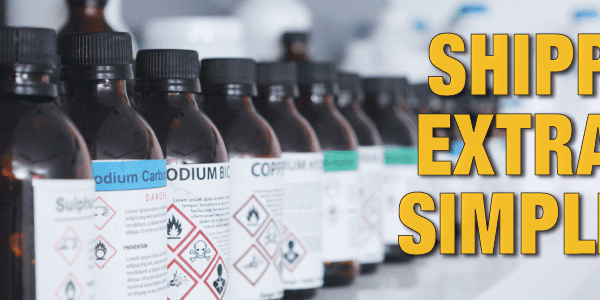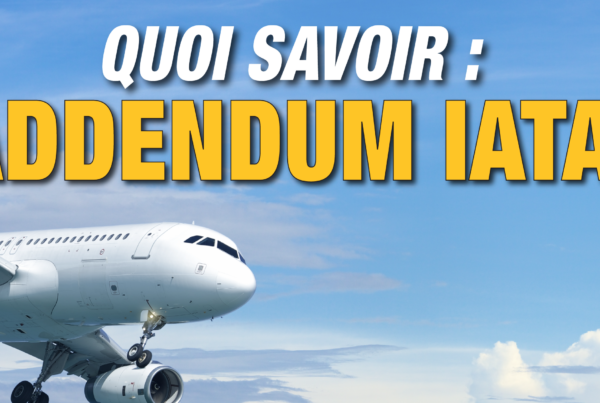In response to the global pandemic and subsequent rollout of the vaccines to combat the COVID-19 pandemic, IATA deemed it necessary to release a guidance document to assist carriers and shippers in the transportation of large quantities of pharmaceuticals around the world (November 2020). As of March 30th, 2021, there is a new release of the IATA’s guidance for Vaccines and Pharmaceuticals, making it the 4th edition. That is four updates in four months. Please make sure to read my previous blog on the initial release of the IATA’s guidance document.
This report will only highlight the significant changes and new insertions relating to the shipping of vaccines and pharmaceuticals.
- 3.1 Capacity & Connectivity: It is critical in global trade that the global connectivity for cargo carriers is restored. IATA encourages States to implement ICAO CART Recommendation 16 due to its request of the members to,
“consider the temporary lifting of restrictions to air cargo operations, including but not limited to granting extra-bilateral rights, in particular for all-cargo services, to foreign airlines to facilitate the transportation of essential goods, supplies and COVID-19 vaccines”. Click here for more information.
IATA is working with ICAO and many worldwide health authorities on the development of a rapid, accurate, and affordable COVID-19 test for all passengers before their departure. This would be a great alternative to the costly quarantine measures, especially in Canada, where passengers who arrive from outside the country have to pay a large sum of money to stay in quarantine hotels while awaiting their test results.
- 3.3.1 Facilitation procedures: National agencies such as border services are being recommended by IATA to work with international organizations like the UN and the private sector industries to examine whether additional measures are available to support the fast processing through contactless vaccines and pharmaceuticals.
- 3.4. Security Environment: With a global shortage for the COVID-19 vaccines and the desire for countries to return to a sense of normality, vaccines have become a very valuable commodity. This is causing vaccines to be prone to theft which IATA is advising to take measures to combat this threat.
- 3.5. Safety Environment – Consideration for Shippers: When shipping vaccines and using lithium battery powered data loggers and / or cargo tracking devices, the shipper must ensure the following –
- The lithium battery has passed UN Manual of Tests and Criteria and has obtained proof from the manufactures;
- Requirements of Section II of Packing instruction 967 and 970 are met, each package must have the lithium battery mark, and a statement must be applied to the air waybill. But, when packages containing vaccines (including lithium battery data loggers and / or cargo tracking devices) are not required to have the lithium battery mark and the compliance statement is not required on the air waybill. Provisions for the return of the same packaging for reuse and empty of vaccines, may be shipped in the same regard provided agreement with the airline.
- 5. Lessons Learned section – IATA provides many examples of the challenges carriers and shippers have faced in the last year when shipping vaccines and pharmaceuticals. A particular example of this is the acceptance process, quantity limits of packaging containing dry ice, and data loggers containing lithium batteries.
Click here to view the newest full Guidance for Vaccine and Pharmaceutical Logistics and Distribution Document. For more information on the transportation of the COVID-19 Vaccine, visit the IATA website.
Stay up to date and sign up for our newsletter!
We have all the products, services and training you need to ensure your staff is properly trained and informed.
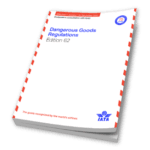 IATA Publications |
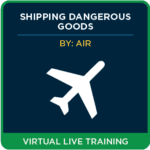 Shipping Dangerous Goods by Air Training Courses |


